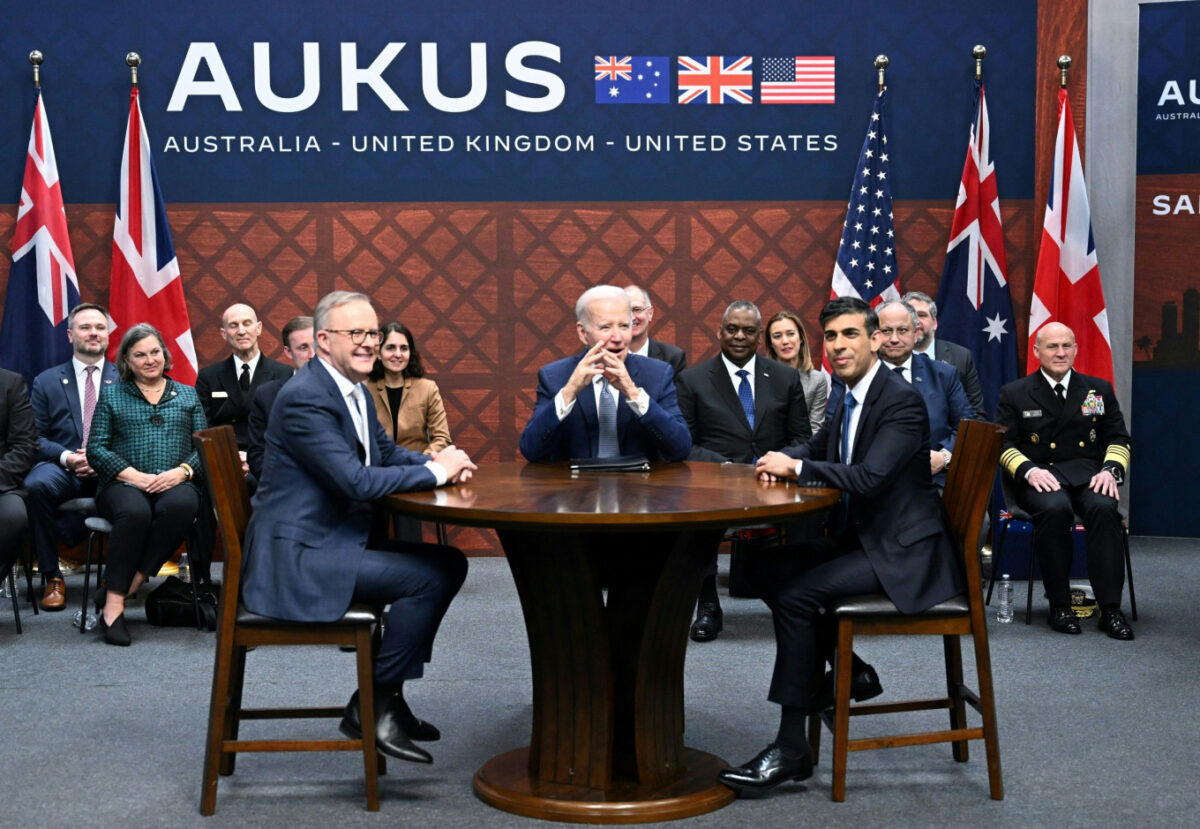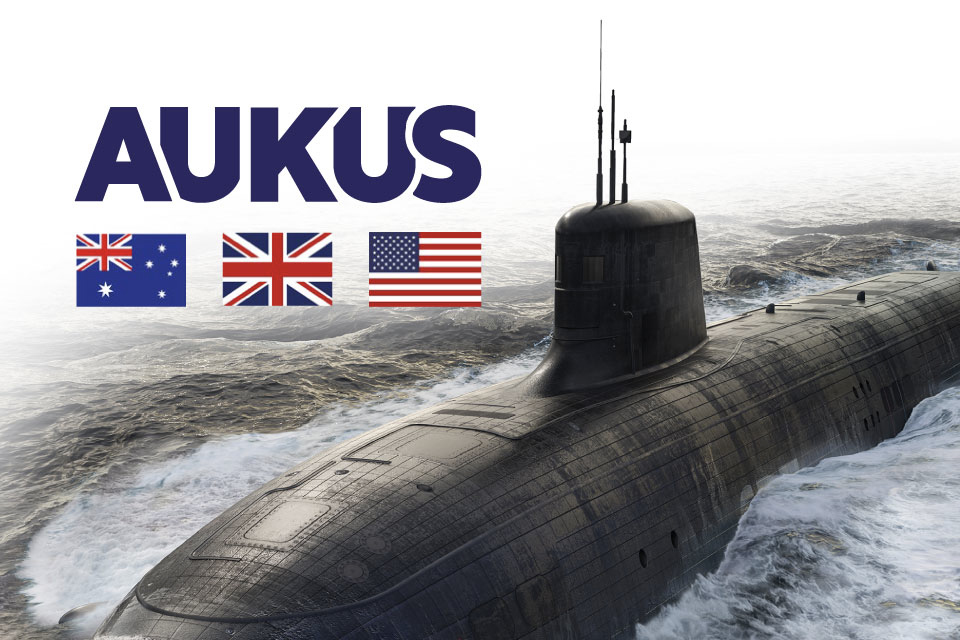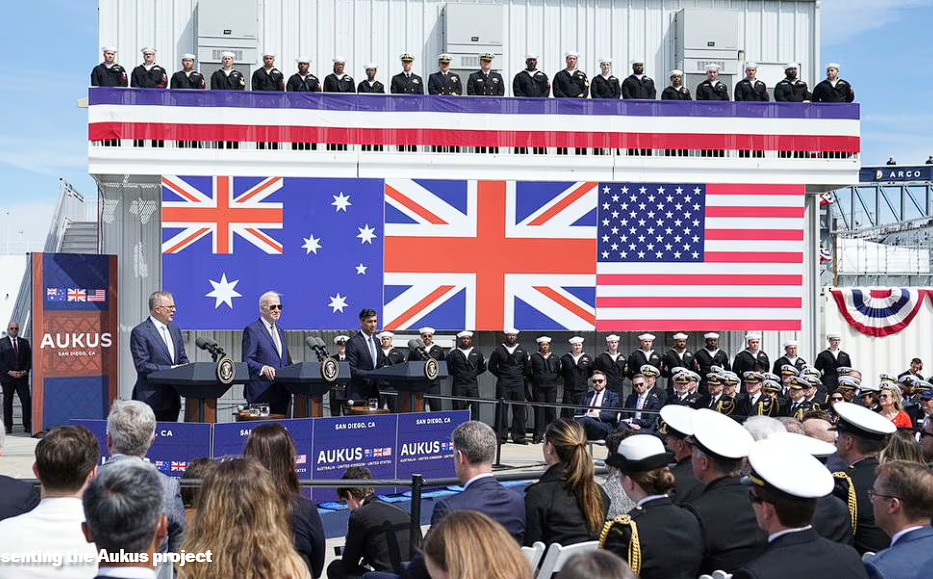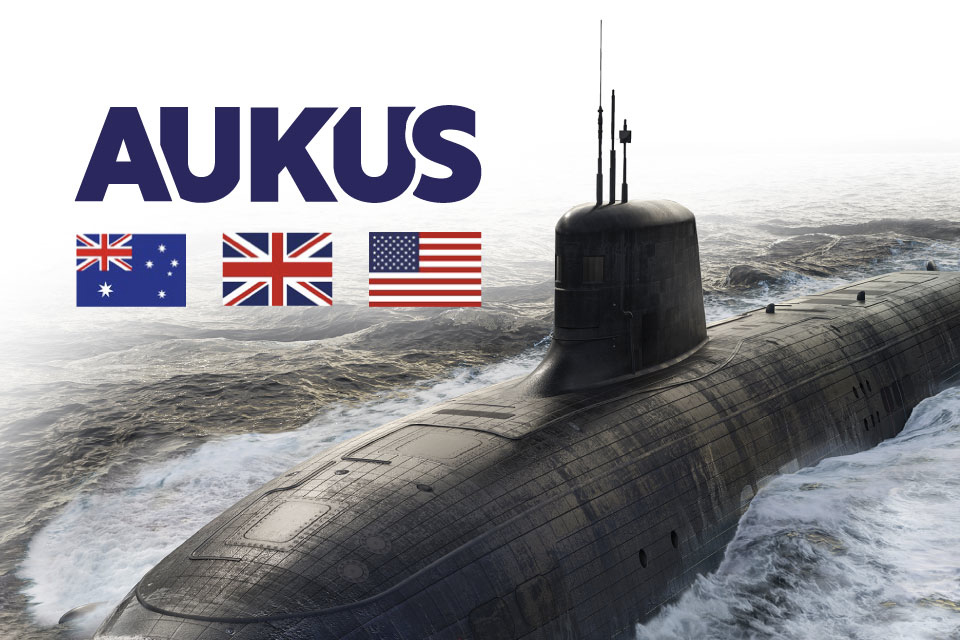On Thursday, the US Congress was able to pass legislation that allowed the country to sell Virginia-class submarines to Australia under the Aukus security pact. The legislation passed the Senate on Wednesday with a strong 87–13 vote. A day later, in the Republican-controlled House, the result was 310 in favour and 118 opposed.
What is the “Aukus” ?

Aukus is an alliance among “Australia, the United Kingdom, and the United States” in a three-way security pact. The agreement was created back in 2020 to share defence technologies between the three countries and to address the possible threat China poses. It allows Australia to buy its first nuclear submarines, though these nuclear-powered submarines would be complete and ready for service only by the mid- to late 2030s. The alliance also includes sharing computing technologies and cyber defences among the three countries. However, the agreement led to the cancellation of a submarine deal between Australia and France, which angered them.
Details of the legislation passed :-

The 2024 National Defence Authorization Act (NDAA), which included details on this legislation, mentions that the sale of nuclear-powered submarines from the US to Australia is expected to occur in the early 2030s. However, the transfer would require certification from the presiding US president at that time. It has been mentioned that two of the submarines that are to be transferred to Australia would be secondhand, while one would be new and come off the production line. The legislation also contains other measures, such as the sharing of advanced defence technology among the US, Australia, and the UK, and details to exempt Australia and the UK from US defence export control licensing.
Support for this new bill:-

This move has received support from the US and Australia. Joe Courtney, a Democratic congressman, supported this and said in a statement that authorising the sale of nuclear-powered submarines to Australia was a “significant” step. The Senate majority leader, Chuck Schumer, called the Aukus agreement a “game changer” and mentioned that it would counter the Chinese Communist Party’s threat and influence in the Pacific Sea.
The Australian government also welcomed this new development. They were hoping to secure this deal before the US entered the politically charged environment of a presidential election next year. The deputy prime minister, Richard Marles, said Australians could have a sense of confidence about this arrangement actually coming to pass due to the strong bipartisan votes it received in the US Congress. He went on to call this moment “the precipice of historic reform” in their country. Pat Conroy, the Australian minister for defence industry, had already welcomed this legislation when it passed through the Senate. In a statement, he called it “a momentous day” for Australia to be in alliance with the United States.
Doubts and Criticism regarding the bill:-
Along with the support that this legislation received, it also had to face doubts and criticism. The US Congress had previously raised fears that the transfer of Virginia-class submarines to Australia could jeopardise the US’s own needs. They mentioned that its own shipyards were already struggling to meet the existing demand. In order to take care of those concerns, the new legislation will enable Australia to make financial contributions to the US to lift the capacity at its shipyards.
Australia is expected to transfer about 3 billion US dollars to the US industrial base for the submarines. The legislation that has been passed mentions that the payment will go into a separate account created for this very purpose. The payment is believed to be one-off, but the exact timing of the payment is still subject to negotiations between the two governments. However, the US Congressional Budget Office has previously stated that the amount could be spread over several years, with an estimate that the majority of it will arrive in 2025.
Aukus has received bipartisan support in Australia. Still, some critics have raised concerns, stating that this agreement risks the country joining the US in a potential future conflict with China. Former prime ministers Paul Keating and Malcolm Turnbull have both expressed their concerns that this plan would increase Australia’s dependence on the US and reduce its own autonomy. However, the Australian government has continuously stated that it will have sovereign control of these submarines. In March, the deputy prime minister, Richard Marles, had already said that the Aukus deal would not include any pre-commitments to the US over the Taiwan-related conflict.



